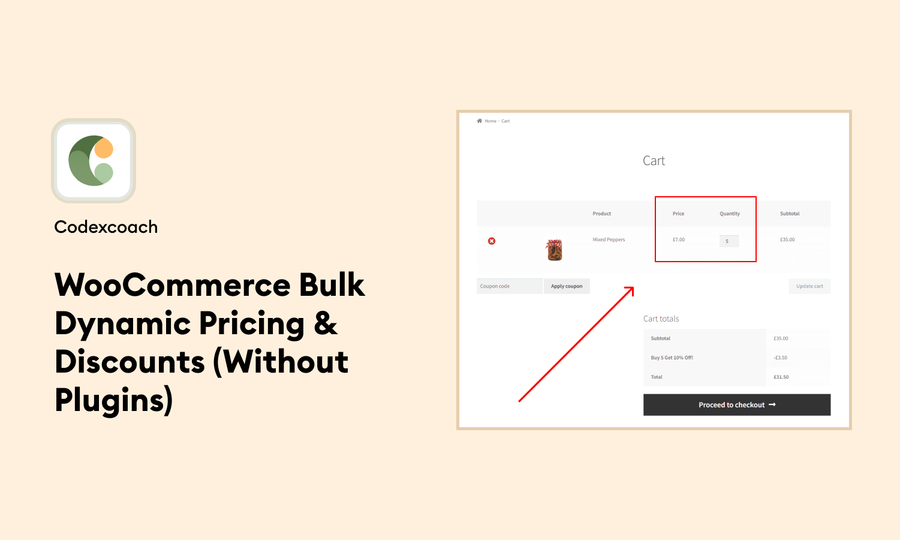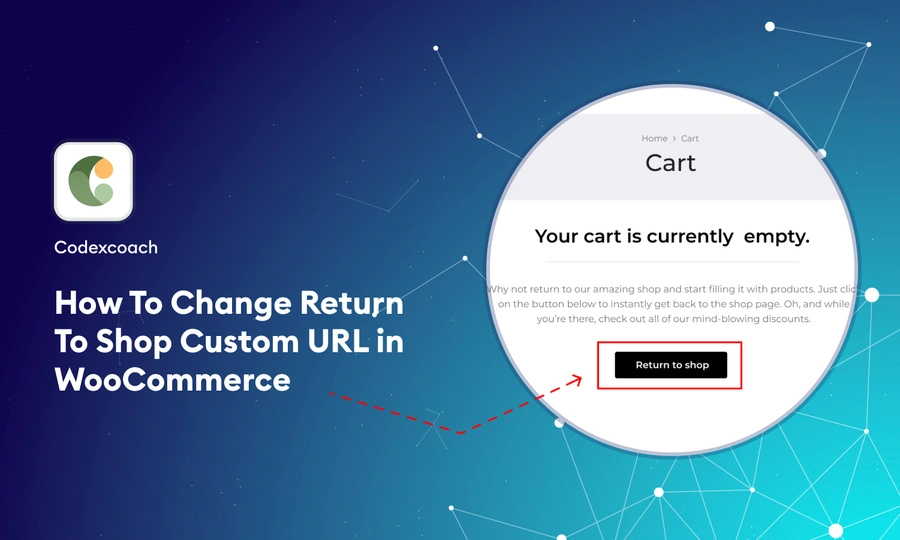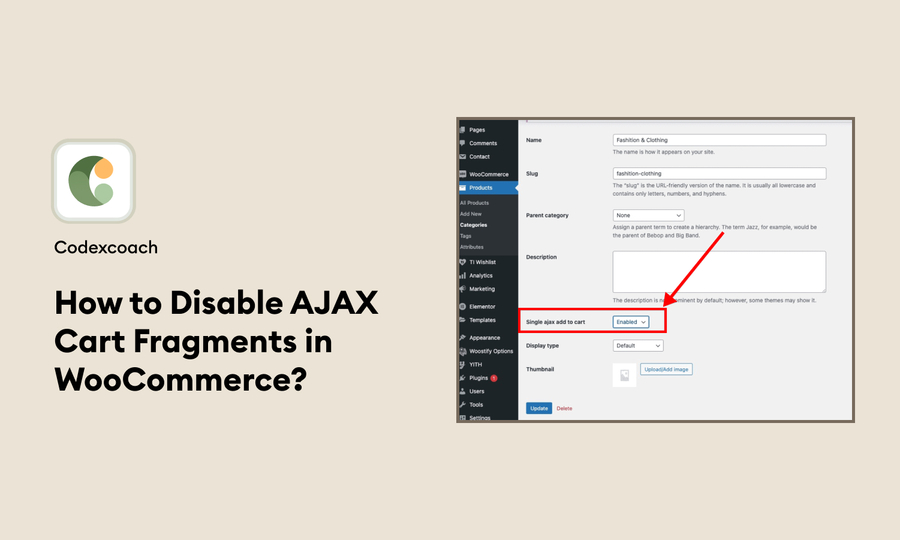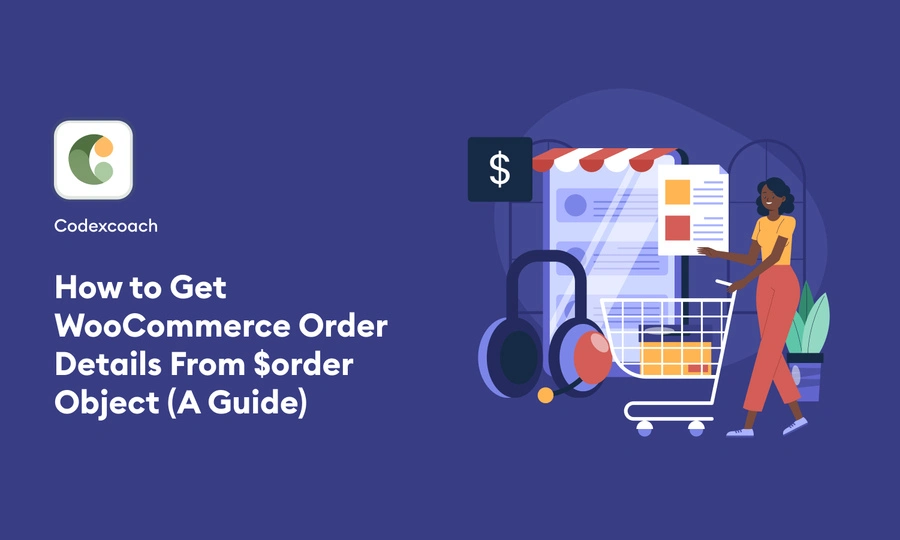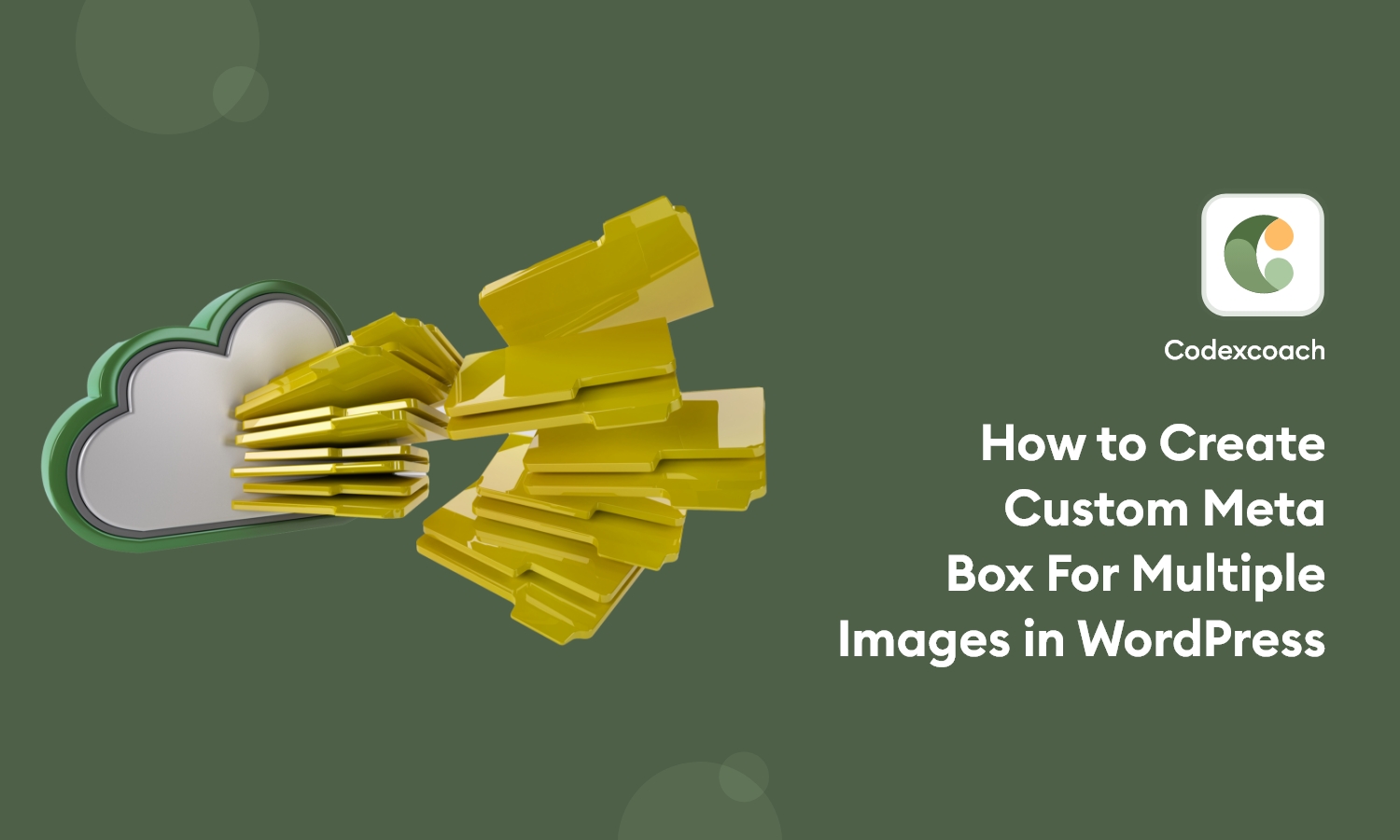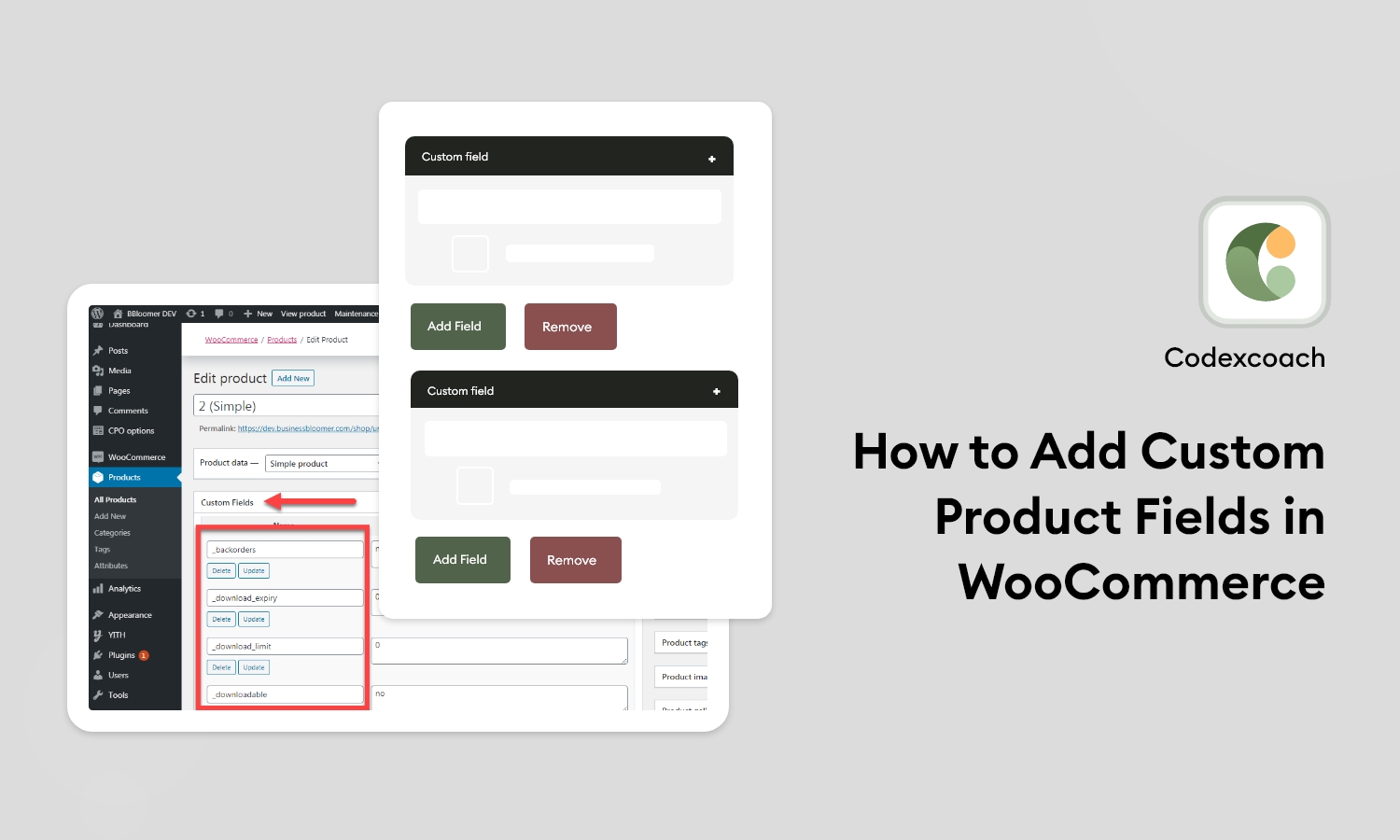Solution that work for you!
CodexCoach is a coding help website that provides coding lessons for beginners, intermediates, and advanced coders. Codexcoach is the web’s most versatile coding platform. Get started today!
WooCommerce Bulk Dynamic Pricing & Discounts (Without Plugins)
Dynamic pricing means that the store charges different prices for the same item depending on the customer or the time of purchase. This approach is also known as surge pricing, discount pricing, time-sensitive pricing, volume pricing, or market pricing. It sets rules that help determine the price of products. This strategy not only fixes prices [...]
Popular Solutions
WordPress Login, Register, Change Password And Forgot Password Without Plugin
Automatically Update Cart when quantity changed in WooCommerce
How to Create Custom Meta Box For Multiple Images in WordPress
Featured Post
Featured image is not showing on custom post type
Introduction This developer’s tutorial will go through the ways for obtaining and displaying a featured picture in WordPress. We will provide some PHP code snippets that you may use in your custom plugins, teams, or page builders that support PHP. Why featured image is important? Featured photos are the first impression that visitors get when [...]

